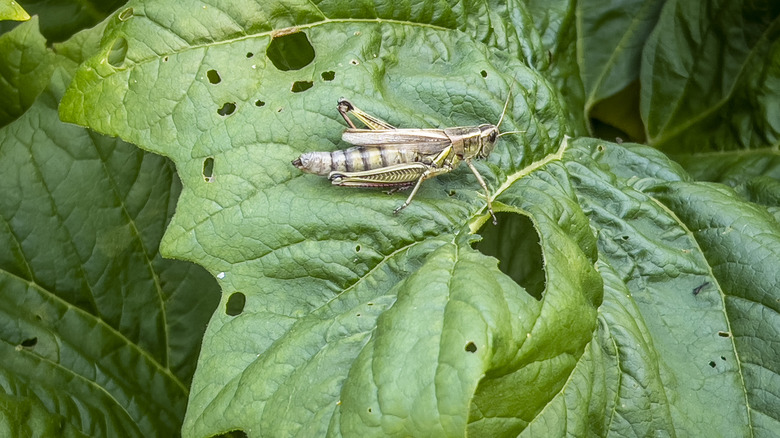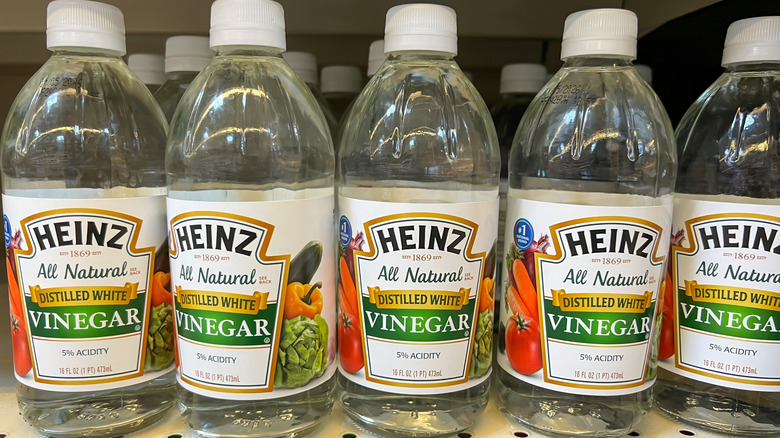The Kitchen Ingredient That Helps Keep Grasshoppers Away From Your Garden
Grasshoppers can be a gardener's worst nightmare, especially if you have some of their favorite foods such as lettuce, onions, and carrots. Since these insects can quickly cause a lot of damage to your plants, it's important to get the problem under control ASAP. Rather than using pesticides against grasshoppers, some people are trying out a common kitchen ingredient instead: Vinegar. Grasshopper control could be one of the reasons why you should be using vinegar in your garden, but there are some key caveats to consider alongside its purported efficacy.
Vinegar is increasingly touted as a tool to use for a variety of purposes around the home. Not only is it inexpensive, but the ingredient is arguably much more accessible compared with specialty products you might need to purchase online or from your local garden center. To that end, many people are trying out household vinegar as a "natural" way to kill weeds and deter pests from their gardens. Like other common pests, it's thought that grasshoppers might stay away because of the smell of the vinegar. While you may be interested in trying this method to prevent insect infestations of this kind, know there is a lack of scientific backing behind using household-grade vinegar as any sort of grasshopper deterrent.
Benefits and risks of using vinegar as a grasshopper deterrent
Vinegar may be among the best ways you can get rid of grasshoppers in your garden, but it's important to use it wisely and consider the potential risks involved. Always dilute vinegar with equal parts water, and consider placing the solution in a spray bottle for a more targeted application. Proponents recommend spraying vinegar-water along the perimeter of your garden as a deterrent only.
There are also many disadvantages of using vinegar in the garden. Not only can the smell be off-putting, but the acidic qualities of vinegar can cause respiratory, skin, and eye irritation during use. It can also burn plants and damage fabric-based patio furniture. Never spray the vinegar solution directly on plants, as the acetic acid can burn them.
While vinegar may be a short-term solution for controlling pests, it shouldn't be relied upon as your sole method of pest control. Mow your lawn regularly, and keep the grass short around any garden beds to reduce nymph access. Finally, it's important to consider that grasshoppers are best controlled before they reach adulthood. Older grasshoppers can essentially fly over any areas in your yard you've treated with vinegar or other liquid controls, which significantly reduces the effectiveness of any of these methods. If grasshoppers are a problem in your neighborhood, it may be worth looking into commercial baits or insecticides to preserve your garden.

